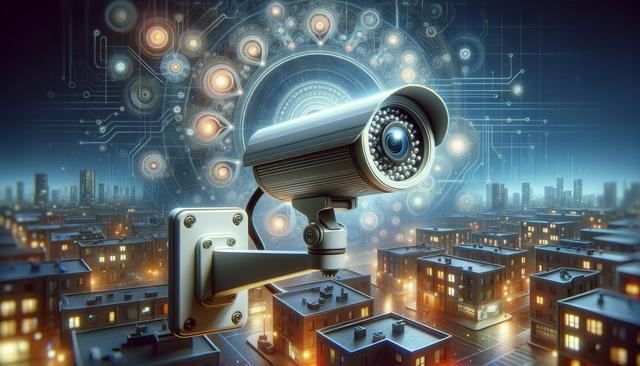Understanding the Role of Security Cameras
Security cameras serve as a visible deterrent to potential intruders and provide valuable evidence in case of a security breach. Their role has expanded beyond simple surveillance to include features like motion detection, night vision, two-way audio, and real-time mobile alerts. Whether for a residential home or a commercial property, security cameras help monitor activity, record incidents, and keep occupants informed of any unusual behavior.
Modern security systems are tailored to various needs. Indoor models are often designed to be discreet, while outdoor versions are built to withstand weather conditions and cover wider areas. Some cameras also integrate with alarm systems and smart home devices, allowing users to manage their entire security setup from one platform. By understanding the different roles and technologies of these devices, users can make informed decisions about their safety needs.
Key Features to Consider When Choosing a Camera
When selecting a security camera, there are several essential features to evaluate. These features impact the camera’s performance, coverage, and integration with other systems. Here are a few crucial elements to consider:
- Resolution: Higher resolution ensures clearer images and better facial or license plate recognition.
- Field of View: A wider angle can monitor more area with fewer cameras.
- Night Vision: Essential for 24/7 monitoring, especially in poorly lit areas.
- Motion Detection: Helps conserve storage and alerts users to specific activity.
- Storage Options: Choose between cloud-based storage and local storage like SD cards or hard drives.
- Connectivity: Wi-Fi and wired options offer flexibility depending on the layout of the property.
Additionally, it’s helpful to consider whether the camera supports mobile access and notifications. This feature allows users to receive alerts in real-time, view live feeds remotely, and review footage from anywhere. Compatibility with smart assistants or home automation systems can also enhance the overall security setup.
Benefits of Installing Security Cameras
Installing security cameras offers numerous advantages that go beyond basic monitoring. One of the most immediate benefits is deterrence; the presence of visible cameras often discourages criminal behavior. In the event of an incident, recorded footage can be crucial for investigations, insurance claims, or legal evidence.
For homeowners, cameras can monitor package deliveries, identify visitors, and keep an eye on children or pets. Businesses benefit from keeping track of employee activity, preventing theft, and maintaining a safe environment for staff and customers. In both cases, the peace of mind that comes from knowing your property is monitored cannot be overstated.
Security cameras also contribute to operational efficiency. For example, business owners can monitor store layouts, customer behavior, and service quality. In residential settings, integrated systems may trigger alerts for smoke, carbon monoxide, or movement at unusual hours. These added layers of protection make security cameras a valuable investment for long-term safety.
Installation and Maintenance Tips
Correct installation is key to maximizing the effectiveness of a security camera system. Strategic placement ensures optimal coverage and minimizes blind spots. Cameras should be mounted at a height that prevents tampering while still capturing useful detail. For outdoor units, it’s important to consider weatherproofing and proper angle adjustment to avoid glare or obstructions.
Here are a few installation tips to consider:
- Test camera views before permanent mounting.
- Ensure strong Wi-Fi signal or cable connection for consistent performance.
- Use surge protectors for outdoor units to prevent damage from lightning or power surges.
- Regularly clean lenses and update firmware for optimal functionality.
Maintenance involves routine checks to ensure that all components are functioning correctly. This includes verifying recording schedules, testing notification systems, and checking storage capacity. Many modern systems offer automated diagnostics and alerts if a camera goes offline or malfunctions, simplifying the maintenance process.
Privacy and Legal Considerations
While security cameras offer substantial benefits, it is important to be mindful of privacy laws and regulations. In many regions, there are specific guidelines about where cameras can be placed and how footage can be used. For example, recording in private spaces such as bathrooms or neighbor’s property without consent is generally prohibited.
Users should also inform guests or employees that surveillance is in use. This not only ensures legal compliance but also promotes transparency and trust. When using cloud storage, it’s essential to understand how data is encrypted and stored to protect against unauthorized access.
To stay compliant and responsible, consider the following steps:
- Review local and national laws related to surveillance.
- Post visible signs indicating camera usage.
- Use password protection and two-factor authentication for remote access.
- Only retain footage for as long as necessary.
By balancing security needs with ethical considerations, users can implement effective monitoring without infringing on others’ privacy rights.
Conclusion: Making Informed Choices for Safer Spaces
Security cameras have evolved into versatile tools that support safety, efficiency, and peace of mind for both residential and commercial environments. By understanding their features, benefits, and legal requirements, users can tailor a system that meets their unique needs. Whether you’re looking to deter intruders, monitor daily activity, or enhance operational oversight, a well-planned camera system is a reliable addition to any property.
Choosing the right cameras, installing them correctly, and maintaining them regularly are all part of building a dependable security framework. With thoughtful planning and ongoing attention, security cameras can serve as a long-term investment in personal and property protection.




Leave a Reply